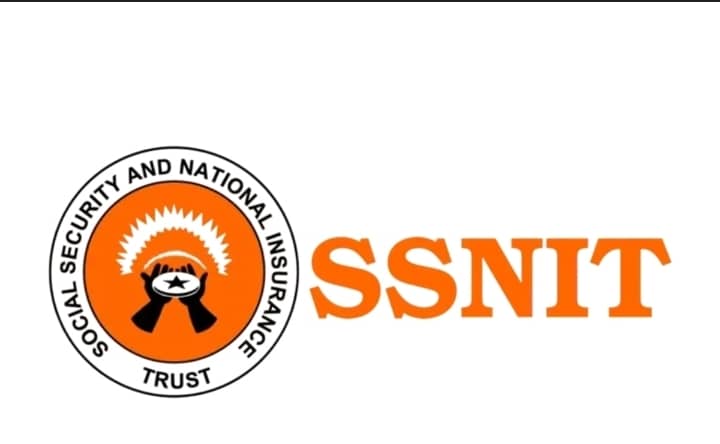
4 Practical Tips to Easily Avoid Plagiarism in Academic Writing
Published: Updated for 2025
Have you ever felt anxious while writing an essay, research paper, or assignment? For many students, the stress comes from two main fears:
-
Not being able to meet the requirements of the assignment.
-
Accidentally committing plagiarism when trying to express ideas.
If this sounds like you, don’t worry—you’re not alone. Plagiarism is one of the most common challenges students face, but with the right strategies, you can write with confidence, maintain originality, and improve your academic integrity.
In this post, we’ll break down four powerful tips to avoid plagiarism, supported by examples and practical tools you can use immediately.
Follow us on WhatsApp for more updates: https://whatsapp.com/channel/0029VaCyYGIFHWpx22L38a2K
Seekers Consult
Contact Us for Your Study Abroad Journey
We search for schools and check available scholarships for you
Contact: 0550414552 / 0362297079
Loan for government workers
Turnitin checker (Plagiarism and AI checker)
Transcript Application
English Proficiency
Recommendation letter
Project work/thesis for undergraduate, master’s, and PhD students.
Apply for Affidavit, Gazette instantly
Passport and Visa Applications
All other Internet Services
What is Plagiarism and Why Should You Avoid It?
Plagiarism is the act of presenting someone else’s words, ideas, or work as your own without proper acknowledgment. This can happen in many ways: copying text directly, paraphrasing too closely, or even forgetting to cite your sources.
Consequences of plagiarism can be serious, including:
-
Academic penalties such as lower grades or expulsion.
-
Loss of credibility with teachers, peers, or future employers.
-
Missed learning opportunities, since plagiarism bypasses critical thinking and original analysis.
By learning how to properly research, plan, and cite, you not only avoid penalties but also strengthen your skills as a writer.
1. Understand What’s Expected of You
The first step to avoiding plagiarism is clarity. Before you start writing, carefully review your assignment instructions and grading rubric. This will help you know exactly what’s required so you don’t feel tempted to copy or cut corners.
Key questions to ask yourself:
-
What is the main goal of the assignment? (e.g., demonstrate knowledge, argue a position, summarize research)
-
What evaluation criteria will my instructor use?
-
What is the required length, format, and citation style (APA, MLA, Chicago, etc.)?
-
Are there recommended sources or types of sources (academic journals, government sites, textbooks)?
-
How much direct quotation is acceptable?
-
Can I incorporate my own previous work without self-plagiarizing?
NOTE: If anything is unclear, ask your instructor for clarification before you begin. This saves time and reduces the risk of plagiarism later.
2. Collect Credible Sources from the Start
Once you understand the requirements, the next step is to gather trustworthy research materials. Using credible sources not only improves the quality of your writing but also helps you avoid the trap of copying from unreliable websites.
Why credible sources matter:
-
They ensure your arguments are backed by accurate and verifiable data.
-
They often cite other trusted references, giving you more materials to explore.
-
They protect you from unknowingly repeating already plagiarized content found on low-quality sites.
How to identify credible sources:
-
Look for domain extensions such as
.edu,.gov, and.ac(academic). -
Verify the author’s name, qualifications, and other publications.
-
Ensure the article has a title, publication date, and references.
-
Avoid spammy websites filled with ads, clickbait, or poor formatting.
Recommended research databases:
-
ResearchGate
-
Microsoft Academic
NOTE: Keep a running list of your sources while researching. Tools like Zotero, Mendeley, or even Google Keep can help you organize references quickly.
Follow us on WhatsApp for more updates: https://whatsapp.com/channel/0029VaCyYGIFHWpx22L38a2K
Seekers Consult
Contact Us for Your Study Abroad Journey
We search for schools and check available scholarships for you
Contact: 0550414552 / 0362297079
Loan for government workers
Transcript Application
Turnitin checker (Plagiarism and AI checker)
English Proficiency
Recommendation letter
Project work/thesis for undergraduate, master’s, and PhD students.
Apply for Affidavit, Gazette instantly
Passport and Visa Applications
All other Internet Services
3. Take Notes, Plan, and Structure Efficiently
One of the most effective ways to avoid plagiarism is planning ahead. If you try to write at the last minute, you’ll likely rely too heavily on sources instead of your own thoughts.
Strategies to stay organized:
-
Track all sources from the very beginning—don’t wait until the end to create your bibliography.
-
Create an outline that matches your sources to your arguments. For example:
-
Point 1 → Source A + your commentary
-
Point 2 → Source B + your example
-
-
Share your outline with your instructor (if possible) to make sure you’re on the right track.
-
Make sure your voice is louder than your citations. Use quotations to support your arguments, not replace them.
NOTE: If 70% of your paper is quotes, that’s a red flag. Aim for 80% original thought and 20% supporting references.
4. When in Doubt, Cite Your Sources
Sometimes it’s hard to know whether an idea needs a citation. When in doubt, cite it anyway. Over-citing is far better than under-citing.
Situations that always require citations:
-
Direct quotes from a source.
-
Paraphrased information that’s not common knowledge.
-
Statistics, data, or research findings.
-
Images, graphs, or other media you didn’t create.
Helpful tools:
-
Draft Coach: A plagiarism checker that highlights matching text and suggests fixes.
-
Turnitin or Grammarly: Useful for detecting unintentional plagiarism.
-
Citation generators: Tools like Cite This For Me or EasyBib help you create accurate references in seconds.
NOTE: Remember, even when paraphrasing, you must change both the wording and the structure while still giving credit to the original author.
Final Thoughts
Avoiding plagiarism doesn’t have to be stressful. By understanding your assignment, relying on credible sources, planning your writing process, and citing when in doubt, you’ll naturally create original, plagiarism-free work.
With these four foolproof tips, you’ll not only protect yourself from academic misconduct but also build confidence as a writer, strengthen your critical thinking, and develop lifelong research skills.
So next time you sit down to write, remember: plan, research, write, cite—and your originality will shine through.
Follow us on WhatsApp for more updates: https://whatsapp.com/channel/0029VaCyYGIFHWpx22L38a2K
Seekers Consult
Contact Us for Your Study Abroad Journey
We search for schools and check available scholarships for you
Contact: 0550414552 / 0362297079
Loan for government workers
Transcript Application
Turnitin checker (Plagiarism and AI checker)
English Proficiency
Recommendation letter
Project work/thesis for undergraduate, master’s, and PhD students.
Apply for Affidavit, Gazette instantly
Passport and Visa Applications
All other Internet Services
- A Complete Guide to Using Turnitin at University for Developmental Studies |UDS| University of Ghana |UG|
- APA Style Guide (7th Edition): A Quick Reference for Students and Researchers





